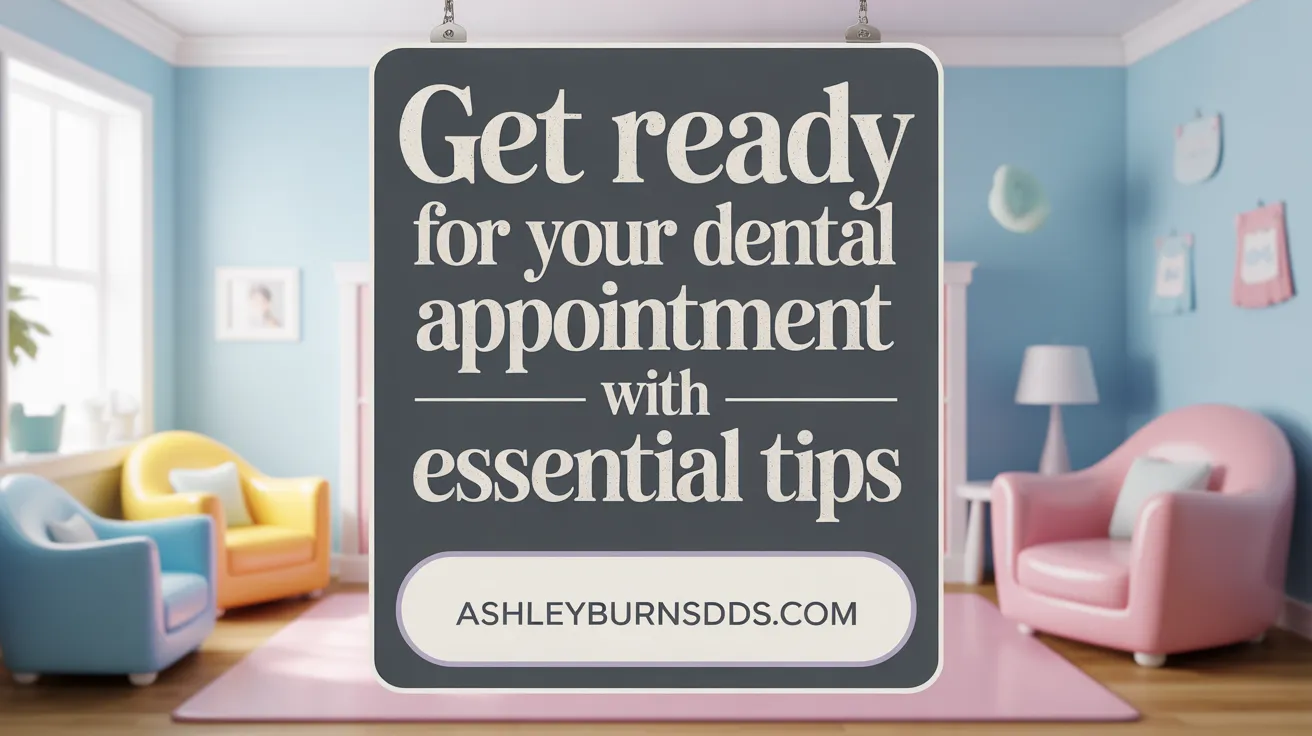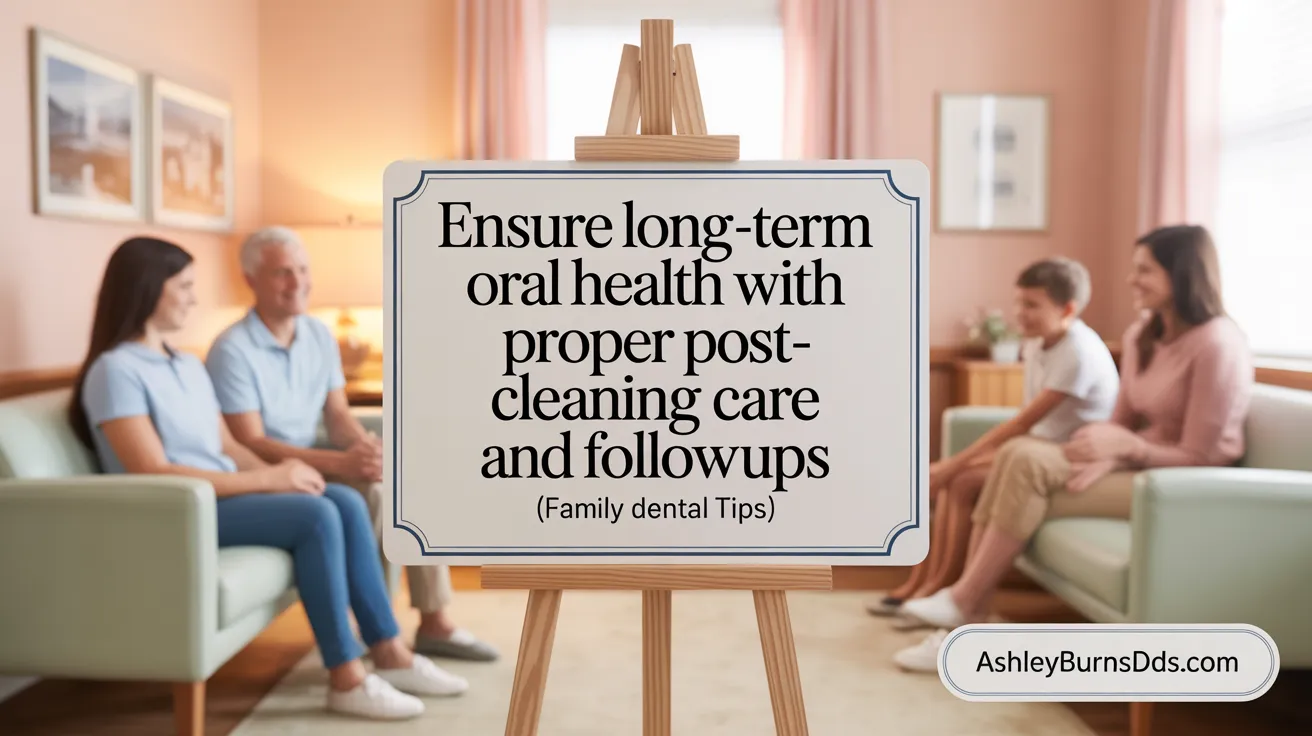Preparing for Your First Visit: What You Need to Know
Attending your first dental cleaning appointment can feel daunting, but understanding what to expect and how to prepare can transform your visit into a smooth and reassuring experience. This guide walks you through each step—from pre-appointment preparations and the procedures involved, to tips for managing anxiety and caring for children during their first dental visits. Equip yourself with knowledge and confidence to maintain your best oral health beginning with that crucial first appointment.
Before the Appointment: Preparing Yourself and Your Records
 Preparing well before your first dental cleaning can make the experience more comfortable and efficient. Start by gathering all relevant dental and medical records from previous dentists, including x-rays, treatment notes, and any health history documentation. This information helps your new dental team get a complete picture of your oral health.
Preparing well before your first dental cleaning can make the experience more comfortable and efficient. Start by gathering all relevant dental and medical records from previous dentists, including x-rays, treatment notes, and any health history documentation. This information helps your new dental team get a complete picture of your oral health.
Confirm your appointment in advance by phone or text and arrive early—about 10 to 15 minutes—to complete all necessary paperwork without feeling rushed. Bringing your insurance card, list of medications, and details of allergies will help the office handle your billing smoothly.
It’s beneficial to brush and floss thoroughly before your visit. Clean teeth make it easier for the hygienist to remove plaque and tartar, ensuring a more effective cleaning. If you feel anxious about dental visits, communicate this early with the dental team. They can tailor treatment approaches to help you stay comfortable.
Shifting focus to questions and oral health goals can also ease apprehensions. Write down anything you'd like to discuss, such as concerns about cavities, gum health, or cosmetic treatments. Going in prepared allows you to take full advantage of your appointment and set a positive tone for ongoing dental care.
In addition, understanding your insurance coverage and discussing costs beforehand can prevent surprises. If possible, review the practice's policies for new patients and any necessary forms, which might be available online to save time.
Overall, preparation involves simple steps that set the stage for a smooth, worry-free dental visit. Being proactive about your health records, appointment logistics, and concerns helps ensure a productive first cleaning and leaves you confident in your dental care routine.
What to Expect: Procedures and Timeline During Your First Cleaning and Exam

Initial check-in and updates of medical/dental history
When you arrive for your first dental appointment, the staff will begin by greeting you and completing some paperwork. They will ask for your recent medical and dental history, allergies, current medications, and insurance details. It’s helpful to bring any relevant records or previous X-rays to provide your new dental team with a complete picture of your oral health.
Visual exam and use of diagnostic tools like X-rays and intra-oral photos
Once you are settled, the dentist or hygienist will perform a thorough visual examination of your teeth, gums, and mouth. They may take digital X-rays to look for issues hidden beneath the surface such as cavities, bone loss, or cysts. Intra-oral photographs might also be used for visual records and patient education. This comprehensive check helps identify current problems and areas needing special attention.
Plaque and tartar removal methods including scaling and polishing
A significant part of the cleaning involves removing plaque and tartar buildup, which cannot be eliminated through regular brushing at home. The hygienist uses a scaler—a special instrument—to gently scrape away hardened tartar, especially below the gumline. After the tartar removal, your teeth will be polished using a gritty paste and high-powered electric brush, which smooths the surface and helps remove surface stains.
Professional flossing and gum health assessment
Following polishing, professional flossing is performed between each tooth to ensure all debris and plaque are cleared. Flossing also helps identify any bleeding gums, which can indicate inflammation or gum disease. This step is essential for promoting healthy gums and overall oral health.
Fluoride rinsing and treatments
To strengthen your teeth and prevent future cavities, the hygienist will rinse your mouth with a fluoride solution. Sometimes, a fluoride treatment may be applied directly to your teeth in the form of a gel, foam, or varnish. This helps protect tooth enamel and can be especially beneficial if you are at higher risk for cavities.
Comprehensive oral health examination including oral cancer screening
The dentist performs a detailed examination of your teeth, gums, and mouth. They look for signs of decay, gum disease, cracked or worn teeth, and abnormal tissue changes. An oral cancer screening is also conducted using special light technology to detect any suspicious lesions not visible to the naked eye.
Estimated duration of the appointment
Overall, your first cleaning and exam usually take between 30 minutes and one hour. The exact timing depends on your individual needs, whether additional X-rays or treatments are necessary, and how much plaque buildup exists.
Post-procedure treatment plan discussion
After completing the procedures, the dentist reviews their findings with you. They will discuss any issues found and suggest appropriate treatments or measures to improve your oral health. You will also have the opportunity to ask questions and schedule follow-up visits, such as routine cleanings every six months or specific dental treatments.
| Procedure Aspect | Description | Additional Notes |
|---|---|---|
| Initial check-in | Update personal and medical info | Bring records, arrive early |
| Visual exam & diagnostics | Check teeth, gums, take X-rays | Detects issues early |
| Tartar removal | Scaling with special instruments | Includes below gumline cleaning |
| Polishing | Gritty paste & high-powered brush | Removes stains & smooths surface |
| Flossing | Professional cleaning between teeth | Checks for gum bleeding |
| Fluoride treatment | Rinse or varnish | Protects against cavities |
| Final exam | Dentist review & oral cancer screening | Ensures comprehensive checkup |
Managing Dental Anxiety and Ensuring a Comfortable Visit

How can I communicate my fears and concerns to the dental staff?
Being open about your anxiety is the first step toward a more comfortable dental visit. Let your dentist or hygienist know about your fears so they can adjust their approach, offer additional support, or explain procedures more thoroughly. Clear communication helps build trust and allows the dental team to tailor the experience to your comfort level.
What relaxation techniques can help reduce dental anxiety?
Practicing calming methods such as deep breathing exercises, visualization, or mindfulness before and during your appointment can make a significant difference. Taking slow, deep breaths helps lower stress levels. Visualizing a peaceful place or focusing on positive thoughts can distract you from the treatment, making the experience less intimidating.
How can distractions like headphones or stress balls help?
Utilizing distractions is an effective way to divert your attention from the procedure. Wearing headphones to listen to soothing music or an audiobook can create a calming environment. Stress balls or fidget toys can occupy your hands and help reduce nervousness.
Is scheduling appointments at certain times beneficial?
Scheduling your dental visits during times when you typically feel calm or relaxed, such as mornings or after a favorite activity, can improve your experience. Avoid stressful days or times when you feel anxious or exhausted. Early appointments also tend to be less busy, reducing waiting time and overall stress.
How does familiarizing myself with the dental environment help?
Visiting the dental office beforehand, either through a quick tour or a meet-and-greet, can familiarize you with the surroundings. Knowing what to expect upon arrival reduces the fear of the unknown. Seeing the staff and the equipment helps demystify the process, making the entire experience more approachable.
Are sedation options available for severe anxiety?
For those with intense dental fears, discussing sedation options such as nitrous oxide (laughing gas), oral sedatives, or intravenous sedation with your dentist is advisable. These options can help you relax during the procedure and may be recommended for complex or lengthy treatments.
What are some tips for building trust with my dental team?
Establishing a positive relationship starts with open communication and honesty. Asking questions, expressing concerns, and giving feedback help your team understand your needs. Consistently attending regular visits builds familiarity and trust. Remember, your dental team is there to help you maintain good oral health and make your experience as comfortable as possible.
Preparing Children for Their First Dental Cleaning: A Parent's Guide
What guidance is available for preparing children for their first dental cleaning?
Helping your child feel comfortable about their first dental cleaning is essential for a positive experience. Start by explaining what will happen with simple, reassuring words that are easy for your child to understand. Use positive language to create excitement rather than fear.
It can be helpful to read children’s books about visiting the dentist. Stories like "The Berenstain Bears Visit the Dentist" introduce the concept in a friendly way, helping children become familiar with the setting and procedures.
Familiarizing your child with the dental office environment can significantly reduce anxiety. You might schedule a visit to the clinic before the appointment day or do a pretend examination at home. Gently feel around your child's mouth, and explain that the dentist will do the same, making it a game.
Choosing a calm time of day for the appointment, such as mid-morning, avoids a tired or cranky child. Maintaining a positive attitude yourself also helps your child feel secure.
Starting good oral hygiene habits early is beneficial. Use small, soft-bristled toothbrushes and a tiny amount of kid-friendly fluoride toothpaste. Practice gentle brushing at home to make your child comfortable with the sensation.
By combining these strategies—clear, positive communication, familiarization activities, and early hygiene routines—you set your child up for a successful and less stressful first dental visit.
Post-Cleaning Care and Follow-Up for Lasting Oral Health

What aftercare and follow-up should be considered after a dental cleaning?
After your dental cleaning, it’s important to adhere to your dentist’s specific instructions to ensure the best results. Typically, you should wait at least 30 minutes before eating or drinking, especially if fluoride treatment was applied, to allow it to bond properly with your enamel. Avoid hot, cold, sticky, or acidic foods and beverages for several hours after the appointment to prevent sensitivity and protect your teeth.
Gently brushing your teeth with a soft-bristle toothbrush and fluoride toothpaste is recommended, especially before bedtime, to help reduce any lingering sensitivity. Keep an eye on your oral health by monitoring for signs of persistent sensitivity, gum bleeding, or swelling. If these symptoms continue for more than a couple of days, contact your dentist for advice.
Maintaining your daily oral hygiene routine, including brushing twice daily and flossing, is crucial. Regular check-ups and professional cleanings every six months help prevent future dental issues and ensure long-term oral health.
Using the dental tools provided by your hygienist, such as special toothbrushes or floss, can also support good home care. Communicating with your dentist about how your oral health is progressing will help tailor your routine and address any concerns early.
How does the fluoride treatment impact aftercare?
Fluoride treatments strengthen the enamel and help prevent cavities. Post-treatment, avoid eating or drinking for about 30 minutes and steer clear of highly acidic or sugary foods and drinks that might undermine the fluoride’s benefits.
Are there dietary considerations after a cleaning?
Yes, for the first few hours post-cleaning, opt for soft, non-acidic foods to minimize discomfort. Avoid hot, cold, sticky, or very sweet items that could trigger sensitivity or promote plaque build-up.
How to manage temporary soreness or gum bleeding?
It is normal to experience slight soreness or minor gum bleeding after the cleaning. Rinse with warm salt water to soothe gums and continue gentle brushing. If bleeding persists or increases, reach out to your dentist.
Why is routine follow-up important?
Scheduling follow-up and routine biannual visits helps catch issues early and maintains your oral health. Regular professional cleanings remove plaque buildup that can’t be eliminated with home care alone.
Can using recommended dental tools improve results?
Absolutely. Using the specific toothbrushes, floss, or fluoride products recommended by your hygienist can enhance cleaning effectiveness and protect your teeth between visits.
Should I communicate with my dentist about my progress?
Yes, keep your dentist informed about your oral health routine, any discomfort, or progress. Open communication ensures personalized care and better treatment outcomes.
Taking Charge of Your Oral Health Journey
Your first dental cleaning appointment is a cornerstone of maintaining a healthy smile and setting the stage for lifelong oral wellness. By preparing thoughtfully, understanding the procedures, managing any dental anxiety, and embracing follow-up care and regular visits, you empower yourself and your family—especially children—to approach dental health with confidence and positivity. Remember, open communication with your dental team and consistent home hygiene practices according to the 2-2-2 rule are vital in achieving the best outcomes. With this guide, your first dental cleaning can be a pleasant and productive step on your oral health journey.
References
- What to Expect During Your First Professional Teeth Cleaning
- What to Expect at Your First Dental Visit - Athens Oconee Dentistry
- How to Prepare Your Child for Their First Dental Cleaning
- What To Expect At Your First Dental Appointment
- Your First Dental Visit: A Comprehensive Guide for New Patients
- What to Expect at Your First Dental Appointment | TX Dentist
- What to Expect From Your First Dental Appointment in a While
- A Child's First Dental Visit Fact Sheet - Stanford Children's Health
- What to Expect | Bradenton, FL, Dentist Near You
